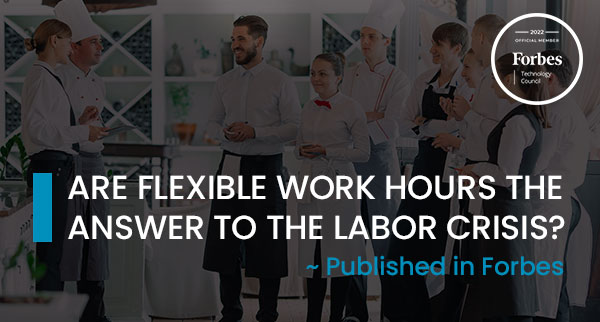Published in Forbes - Across all industries worldwide, today’s employees are making their voices heard on the growing need to revamp traditional work schedules and rules based on evolving lifestyle preferences. In fact, recent survey results indicate that as much as 83% of employees would feel more loyal toward their employers if more flexible work options were made available to them. Yet from hotel, restaurant and retail businesses to senior care and student housing facilities, many employers have resisted offering that flexibility and, until recently, have continued to adhere to outdated practices and antiquated labor laws.
With the onset of Covid-19, an instantaneous global shift occurred, with many employees suddenly required to work remotely. Some have even gone as far as to declare the five-day workweek dead. The pandemic has no doubt been the catalyst that forced a large number of employers to restructure their workforce strategies overnight. However, long before the recent shift, multiple industries had already begun waking up to the fact that labor policies put in place at the beginning of the 20th century, to a large extent for manufacturing operations, are no longer relevant and indeed can even be detrimental to the diverse needs of today’s service-based economies.
With 54% of employees in 16 countries indicating a reluctance to return to pre-Covid work routines, the global labor market is undoubtedly entering a watershed moment where offering flexibility can mean all the difference in running an adequately staffed and successful business. With millennials, who grew up during the era of smart technology and personalized service now taking over more positions from older generations, such preferences are expected to continue to grow.
Demonstrating The Success Of Workplace Flexibility
Fortunately, for those who remain undecided on the practicality of introducing flexible work options, several regions have already experimented with employee schedule flexibility and have shown impressive results. For example, in Iceland where, beginning in 2015, the national government implemented a four-day work week trial, a shorter week actually led to either the same or a higher level of employee productivity. With employees also feeling less stressed and able to better balance both work and daily life needs, the trials have since resulted in unions renegotiating work timeframes, with 86% of Icelanders now having moved to shorter workweeks or being provided the right to do so in the future. ⬡






